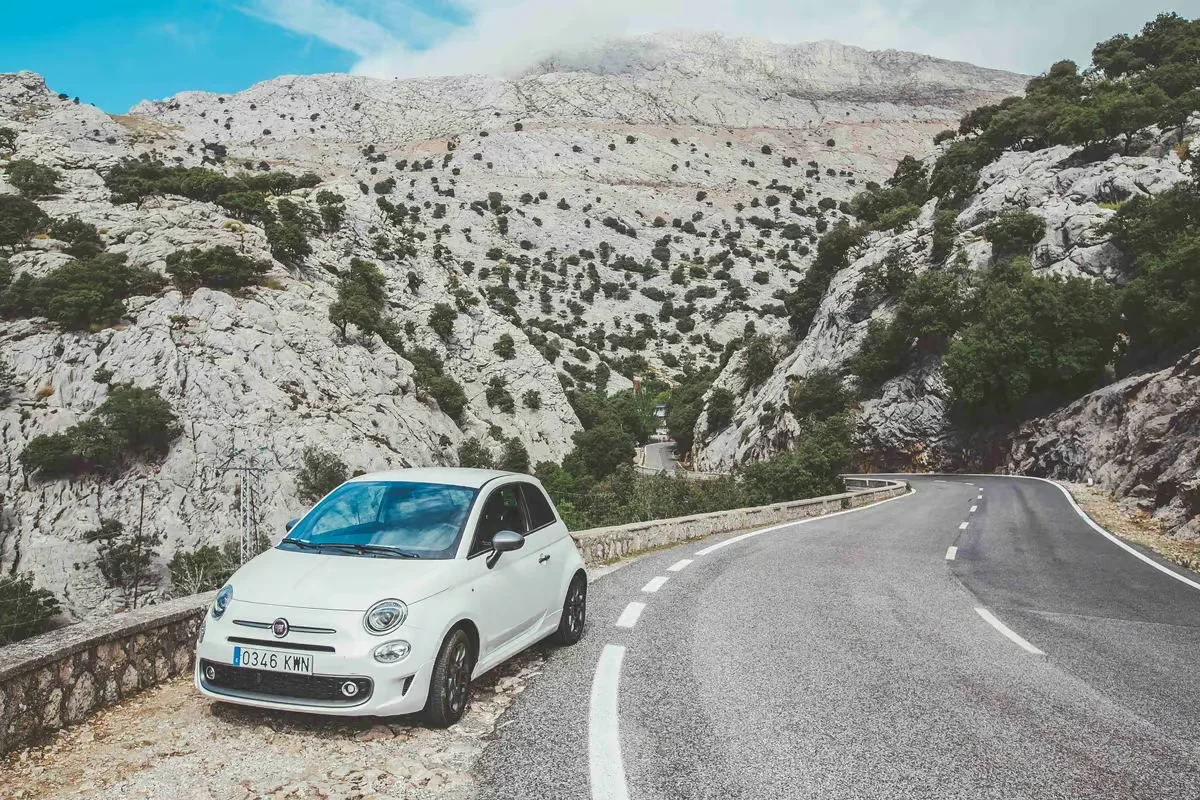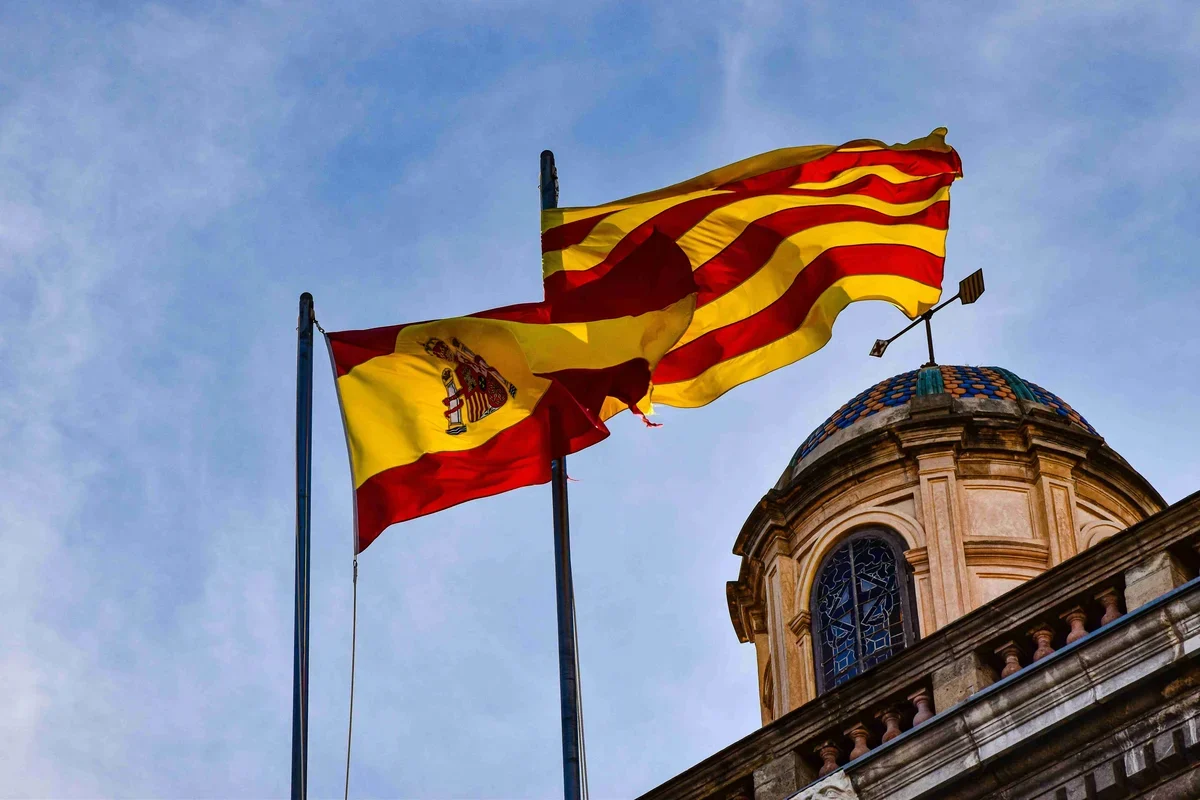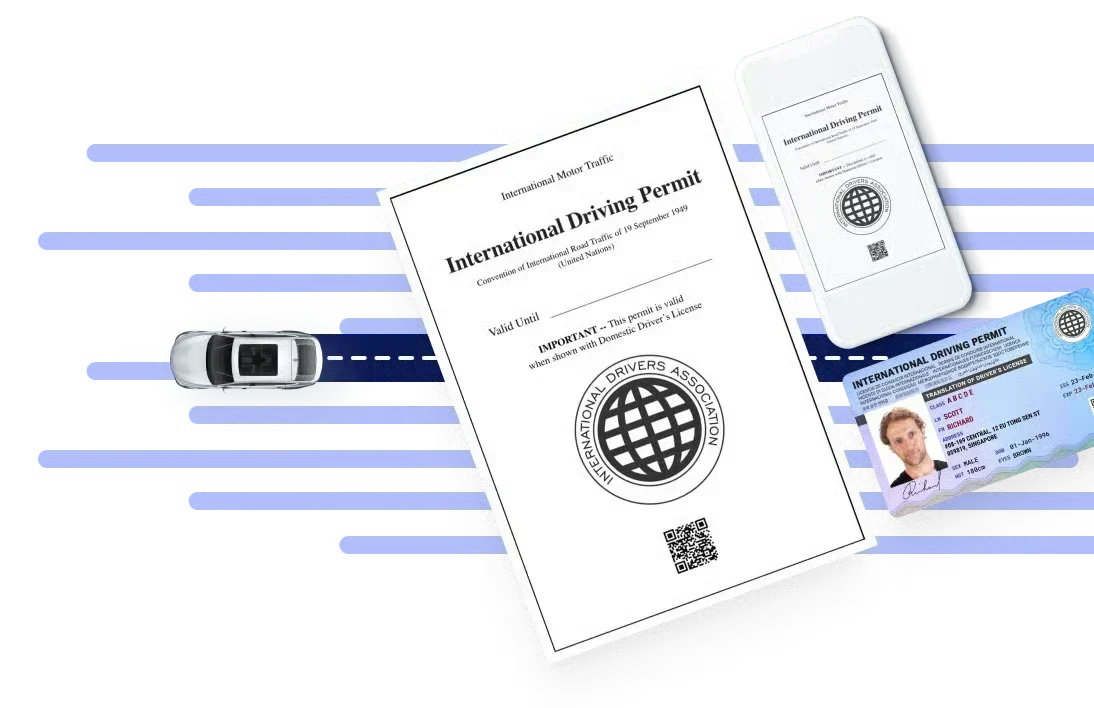When planning a trip to Spain, seasoned travelers often recommend taking the train. However, those looking to visit outside major cities like Madrid, Barcelona, and Seville may find that driving offers a unique advantage. For instance, renting a vehicle becomes essential for easy access if you’re headed to Granada or other towns.
You might not have considered renting an electric vehicle (EV) yet, but it could be a way to explore Spain differently. Although the country is still developing its sustainable EV infrastructure, don’t let this deter you from trying this option.
Let our guide help you rent an EV, obtain an International Driving Permit in Spain, and plan an unforgettable road trip in an electric vehicle across Spain.
Charging Infrastructure in Spain

Source: Photo by Eugene Zhyvchik on Unsplash
Spain’s electric vehicle (EV) charging infrastructure is evolving but faces significant challenges. Despite a growing market for EVs, the country’s charging options and accessibility remain less developed than some European counterparts.
Current State of Charging Stations
As of mid-2024, Spain had approximately 34,105 public charging points, with a notable increase of about 9,000 new points added in the previous year. However, the distribution and utilization of these stations reveal a mixed picture:
- Underutilization: Many existing charging points are underused, with only around 4% of their capacity being exploited. This underutilization is a significant barrier to encouraging more drivers to switch to electric vehicles.
- Regional Disparities: The distribution of charging stations is uneven across Spain. Catalonia leads with 6,736 charging points, followed by Madrid and Andalusia. In contrast, regions like Ceuta and Melilla have only a handful of stations.
Spain’s charging infrastructure is growing steadily, with more charging points becoming available each year. However, challenges like underutilization and uneven distribution across regions highlight areas for improvement. Addressing these gaps can make electric vehicles a more practical choice for drivers across the country, helping Spain build a more accessible and efficient EV network.
Types of Charging Points
Most of Spain’s charging infrastructure consists of medium-speed AC chargers, typically offering power between 7.4 kW and 22 kW. However, only about 10% of the charging points are fast chargers (50 kW or more). These do not meet the growing demand for faster charging options, especially for long-distance travel and reducing downtime during trips.
Challenges Ahead
Despite these efforts, several challenges remain:
- Limited Coverage: The current network does not adequately cover rural areas or major inter-city routes, making long-distance travel difficult for EV owners.
- Maintenance Issues: Many existing charging points are inactive or poorly maintained, further complicating their usability.
- Public Awareness: Potential users still lack awareness regarding the benefits and availability of electric vehicles and their charging infrastructure.
Over the years, Spain has made progress in developing its EV charging infrastructure. However, there is still a long way to go before the country can effectively support widespread electric vehicle adoption.
How Much Does Rent and Charge an Electric Car in Spain Cost?
Renting an electric car in Spain can be budget-friendly for travelers, with daily rental rates starting at around €40. However, premium models like the BMW i3 or Tesla may cost more. Some rental companies may also charge extra fees for underage drivers or additional insurance options.
Charging Costs
Charging an electric car is generally cheaper than refueling a traditional petrol vehicle. The price of electricity for charging can vary, but it typically ranges from €0.10 to €0.30 ($0.11 to USD 0.32) per kWh, depending on the time of day and location. Charging during off-peak hours is often more economical.
- Cost per 100 km: Driving 100 km in an electric car costs approximately €1.30 ($1.39), while a petrol car could cost around €7 ($7.49) for the same distance, making electric vehicles significantly cheaper.
While many public charging stations are available, they may charge higher rates than home charging. Finding charging points in advance is advisable, especially in less urban areas with limited availability.
Requirements for Renting an Electric Vehicle (EV) in Spain
In Spain, most rental companies require drivers to be at least 21 years old. However, some agencies may impose additional fees for drivers under 25.
More importantly, you must possess a valid driving license that you have held for at least one year. If your license is not in Spanish or English, it’s advisable to obtain an International Driving Permit (IDP) , as this may be required by some rental agencies.
Top EV-Friendly Routes in Spain for Travelers
Spain offers various road trip options tailored to specific interests, including gastronomic adventures. Plus, traveling in an electric vehicle (EV) can minimize your carbon footprint and contribute to a more sustainable journey.
The Mediterranean Coast: Barcelona to Valencia
This coastal route, featuring picturesque beaches, spans approximately 350 kilometers along the beautiful Mediterranean coastline. Start your journey in Barcelona, where popular attractions include the Sagrada Familia and Park Güell. Charging stations are plentiful, with over 1,700 available in the city.
Key Stops:
- Sitges: A charming beach town known for its lively atmosphere and beautiful coastline. Look for charging points at local hotels or public parking areas.
- Tarragona: Explore Roman ruins and enjoy local seafood dishes. Charging stations are available in the city center.
End your trip to Valencia, which is famous for its architecture and paella. The city also has numerous charging points, making it easy to recharge before heading out.
The Literary Route: Madrid to Toledo
Spain is a literary treasure trove, and this route is a must for bookworms seeking a literary road trip.
Key Stops:
- Madrid: Begin your journey in Spain’s capital. Visit landmarks like the Prado Museum and Retiro Park. Madrid has a robust network of charging stations.
- Toledo: Known as the “City of Three Cultures,” Toledo is filled with historical sites and literary connections (think of authors like Miguel de Cervantes). Charging stations can be found near major attractions such as the Alcázar.
Stretching about 90 kilometers from Madrid to Toledo, this journey takes you through a city steeped in history and rich in literary significance.
The Foodie Route: Madrid to Barcelona
If you’re planning a foodie road trip, this route should definitely be on your list. Spanning approximately 620 kilometers, it connects two of Spain’s culinary capitals, offering a delightful journey through diverse flavors and regional specialties.
Key Stops:
- Madrid: Start with traditional tapas in La Latina or visit the Mercado de San Miguel for various local delicacies.
- Guadalajara: Stop here for a taste of local cuisine at one of its many restaurants. Charging stations are available at various locations.
- Lleida: Known for its rich agricultural produce, Lleida offers great dining options featuring local ingredients. Look for charging points in public areas.
Conclude your journey to Barcelona and enjoy its world-renowned Catalan cuisine. As mentioned earlier, the city boasts numerous charging stations.
Andalusia’s Scenic Route: Seville to Granada
This picturesque route stretches about 250 kilometers through Andalusia’s beautiful landscapes. This region is celebrated for its historical significance, particularly its Moorish influence.
Key Stops:
- Seville: Start in this vibrant city known for flamenco dancing and historic architecture. Charging stations are widely available.
- Córdoba: Famous for its Mezquita (mosque-cathedral), Córdoba also offers delicious local dishes like salmorejo. Charging points can be found near tourist attractions.
End your journey in Granada, home to the Alhambra Palace. The city has several charging stations, especially around tourist hotspots.
The Northern Route: Bilbao to San Sebastián
This approximately 100-kilometer drive typically takes about 90 minutes via the highway, but the scenic coastal route allows for a more leisurely road trip in the Basque Country.
Key Stops:
- Bilbao: Known for the Guggenheim Museum and Basque cuisine, Bilbao has numerous charging stations throughout the city.
- Getxo: A coastal town perfect for a quick stop at the beach or enjoying pintxos (tapas) at local bars.
Your last destination, San Sebastián, is famous for its Michelin-starred restaurants. Charging points are readily available near popular dining areas.
Top Options for Renting an Electric Vehicle (EV) in Spain
Travelers looking to rent an electric vehicle (EV) in Spain have various options, ranging from international rental agencies to local companies. Here’s a mix of the best choices available:
SIXT
SIXT is a well-known international company with a strong presence in Spain. They offer a diverse fleet of electric vehicles, including models like the BMW i3 and Tesla Model 3. These are available in major cities such as Madrid, Barcelona, and Mallorca.
SIXT provides several charging points, competitive rates, and flexible rental terms at its rental locations.
Nizacars
Nizacars focuses on providing high-quality electric vehicles in major cities like Barcelona and Málaga. It also offers an all-inclusive package with comprehensive insurance, 24-hour roadside assistance, and a fleet emphasizing sustainability and style.
Record Go
Record Go is known for its budget-friendly options and has recently expanded to include electric vehicles. It operates in major airports and cities across Spain. Record Go’s competitive rates also include various insurance options and free cancellations.
Hello Rentacar
Hello Rentacar specializes in electric vehicle rentals in Asturias and Galicia, making it an excellent choice for travelers in those regions. They provide transparent pricing without hidden fees, ensuring a hassle-free rental experience.
Gaursa Rent a Car
Gaursa is a local car rental agency offering a variety of electric cars with low operating costs and excellent customer service. It has offices in Bilbao, San Sebastián, Vitoria, and other areas in the Basque country.
Opting for an Electric Car Rental in Spain
While you may have concerns about the accessibility and efficiency of electric vehicles (EVs) in Spain, proper preparation can help you overcome these challenges. One essential step is obtaining an International Driving Permit (IDP) before your trip, facilitating a smoother rental process and a sustainable travel experience.
FAQs
Are there enough charging stations in Spain?
While Spain is expanding its EV charging infrastructure, availability can be uneven. Major cities generally have many charging stations, but rural areas may have fewer options. It’s advisable to plan your route and charging stops ahead of time.
How do I find charging stations while driving an EV in Spain?
Several apps can help you locate charging stations across Spain, such as Electromaps, Iberdrola, and Plugshare. These apps provide real-time information on charger availability, types of connectors, and payment options.
Do I need to return the EV at full charge?
Rental companies may require you to return the vehicle with the same charge level as when you picked it up. Check the specific policies of the rental agency you choose to avoid additional fees.
Can I charge my EV at my accommodation?
Many hotels and accommodations in Spain increasingly offer EV charging facilities for guests. It’s best to check with your hotel beforehand to confirm availability.
What should I do if I encounter a non-working charger?
If you find a charger out of service, use your charging app to locate the nearest operational station. It’s wise to have a backup plan by identifying multiple charging options along your route.
Are there any incentives for renting or using electric vehicles in Spain?
Spain has various incentives to promote electric mobility, including subsidies for purchasing or leasing EVs and reduced tolls or parking fees for electric vehicles in certain regions. Check local regulations for specific benefits available during your visit.







